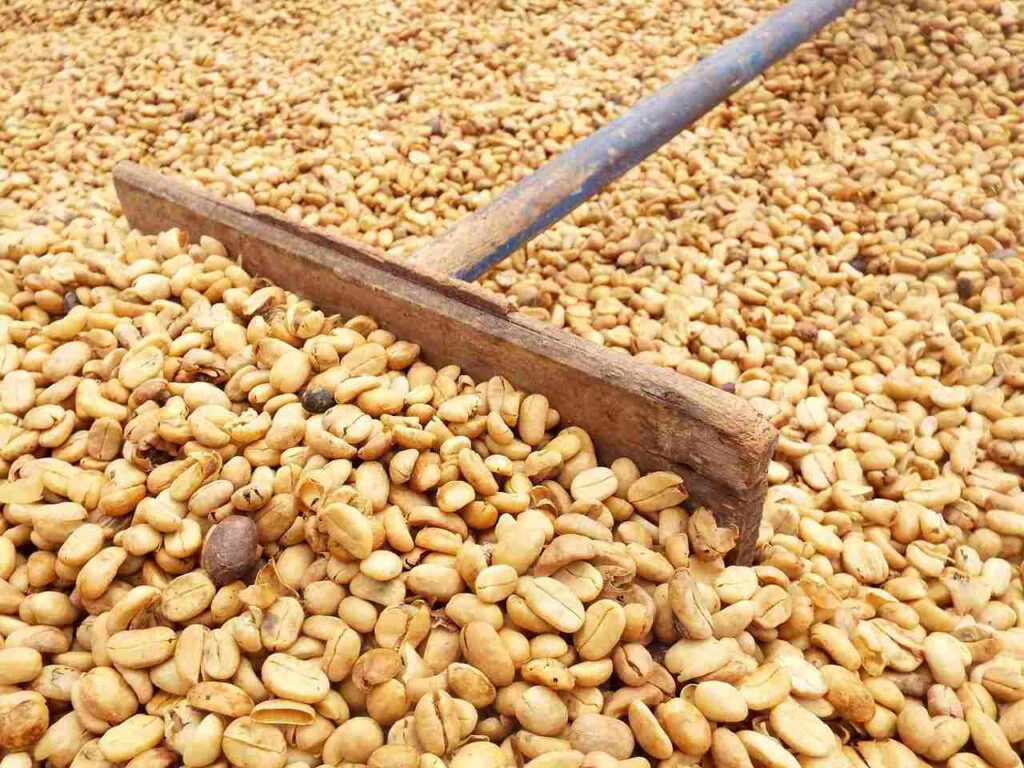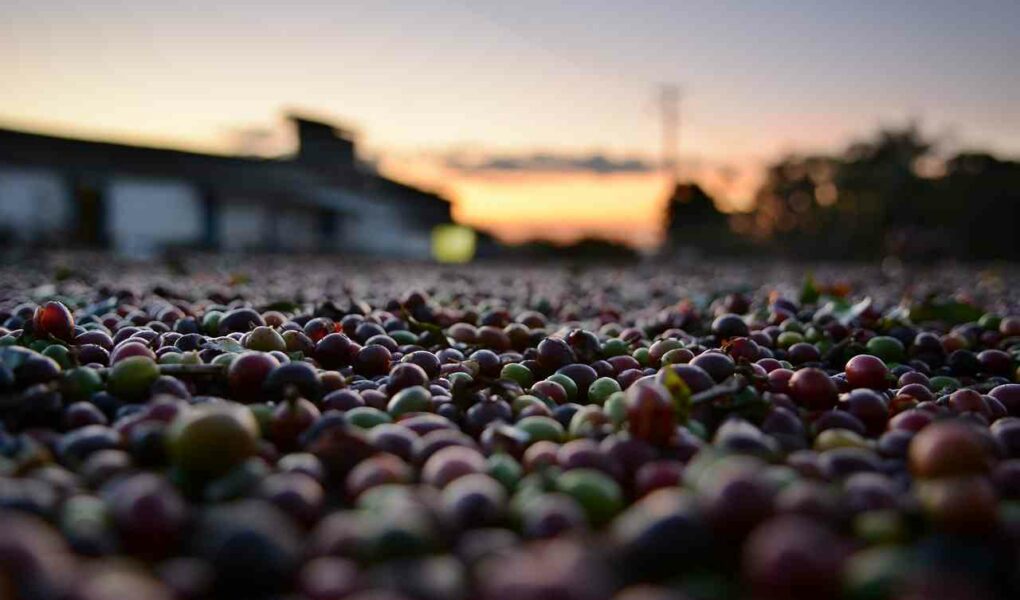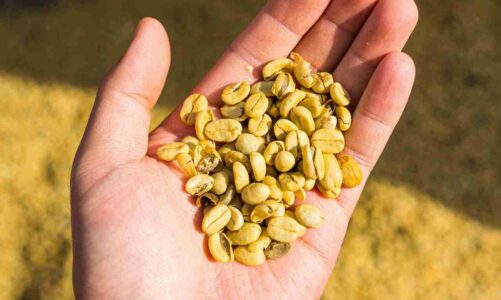Have you ever sipped on a cup of coffee and thought to yourself, “What makes this coffee taste so unique?” Well, the answer could lie in the process of harvesting and processing the coffee beans. One such process is Gilling Basah, also known as Wet-Hulling, a traditional method of harvesting coffee beans in certain regions of Indonesia. We are going to have a look at Gilling Basah, exploring what it is, its impact on coffee flavor, and why coffee lovers should take notice.
What is Gilling Basah?
Gilling Basah, also known as the Wet-Hulling process, is a traditional method of harvesting coffee beans that is specific to certain regions of Indonesia.
The process starts with picking the ripe coffee cherries, after which the outer layer of the cherry, called the parchment layer, is partially removed while the beans are still moist. This sets it apart from the more commonly used “dry” method, where the entire coffee cherry is dried before the parchment layer is removed.
The partial removal of the parchment layer while the beans are still moist results in a unique type of coffee bean that is characterized by its own unique flavor profile and aroma. This process is essential in producing some of the most iconic coffee varieties in Indonesia, such as Sumatra, Sulawesi, and Flores.
The wet-hulling process not only imparts a distinct flavor to the coffee beans, but it also allows for a quicker drying time, as the beans are partially exposed to the sun. This is important for the coffee producers in Indonesia, as the rainy season can make it difficult to dry the coffee beans properly using the traditional “dry” method.
The Gilling Basah process is a crucial part of the coffee-making tradition in Indonesia and has played a significant role in shaping the flavor profiles of some of the country’s most beloved coffee varieties.
The Benefits of Gilling Basah

Unique Coffee Flavor Profiles: The Gilling Basah process contributes to the development of unique flavor profiles in coffee. This is due to the fact that the process allows for more fermentation to occur, which in turn leads to a deeper, more complex taste profile. This makes coffee produced through the Gilling Basah process stand out in taste compared to coffee processed through other methods.
Increased Coffee Production: The Gilling Basah process is also beneficial in terms of increasing coffee production. This is because it is a quicker method of processing coffee compared to other methods, which results in a faster turnaround time and an increase in overall coffee production.
Adaptability to Certain Growing Conditions: The Gilling Basah process is particularly suited for areas with higher humidity and moisture levels, which can negatively impact the quality of coffee processed through other methods. In these growing conditions, the Gilling Basah process allows for the production of high-quality coffee that maintains its flavor and aroma.
The Gilling Basah process offers several benefits to coffee growers and coffee enthusiasts alike. From its contribution to unique flavor profiles, increased coffee production, and adaptability to certain growing conditions, it is no wonder that this process has gained popularity in the coffee industry.
The Gilling Basah Process
The Gilling Basah process involves several steps to ensure a high-quality product. First, the coffee cherries are harvested and then separated from the stems. Next, the coffee cherries are allowed to ferment for a certain amount of time, which contributes to the development of unique flavor profiles. Then, the cherries are dried, either in the sun or with the use of mechanical dryers. Finally, the dried coffee cherries are hulled to remove the outer layer, revealing the coffee beans.
Timing and technique are critical in the Gilling Basah process as they play a significant role in determining the final product’s flavor profile. For example, the amount of time the cherries are allowed to ferment and the method used to dry the cherries can greatly impact the coffee’s taste. It is important for coffee growers to carefully control these elements to ensure that they produce the best possible coffee.
How Gilling Basah Affects the Coffee Bean Structure and Flavor

The Gilling Basah process has a profound effect on the structure and flavor of the coffee beans. The increased fermentation and drying time result in a deeper and more complex flavor profile, which sets Gilling Basah processed coffee apart from coffee processed through other methods. The process also contributes to the development of unique structural characteristics, such as a thicker and harder outer layer, that give the coffee a distinct appearance and texture.
The Gilling Basah process is a critical step in the production of high-quality coffee, offering unique flavor profiles, increased production, and adaptability to certain growing conditions. Understanding the process, including its timing, technique, and effects on the coffee beans, is essential for coffee growers, coffee enthusiasts, and anyone interested in the coffee industry.
The Different Types of Coffee Produced with Gilling Basah
Indonesia is known for producing a wide variety of unique coffee varietals, each with its own distinct flavor profile. Some of the most well-known Indonesian coffee varietals include Arabica, Robusta, and Liberica. These beans are grown in different regions across the country and are influenced by the local climate and soil conditions.
Coffee produced with the Gilling Basah process, also known as wet-hulling, is a traditional Indonesian method of processing coffee beans. In this process, the beans are hulled when they are still partially wet, which results in a unique flavor profile. The beans are characterized by their earthy and woody notes, low acidity, and heavy body. This method of processing is particularly well-suited for Robusta beans, which are grown in large quantities in Indonesia.
Some of the most well-known regions for coffee production in Indonesia include Java, Sumatra, Sulawesi, and Bali. These regions are known for their high-quality coffee beans and the Gilling Basah process is widely used in these areas. Java is particularly famous for its rich and bold coffee, which is grown in the volcanic soils of the region.
Sumatra is known for its unique earthy and herbal notes, while Sulawesi is famous for its smooth and well-balanced coffee. Bali is known for its specialty coffee, which is grown in small quantities and has a unique flavor profile.
The Final Sip
Overall, the Gilling Basah process is a unique and effective processing method for coffee beans. As a regular coffee drinker, this term may not be relevant to you, but it is important to understand where your coffee comes from and factors that can influence the flavor profile of your drink.




